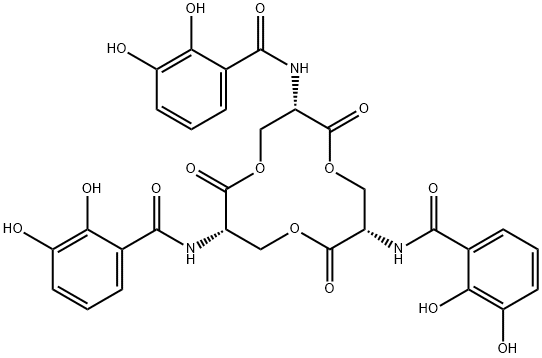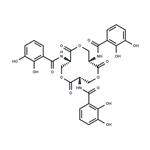ChEBI: Enterobactin is a macrotriolide produced by certain members of Enterobacteriaceae, e.g. Escherichia coli and Salmonella. It has a role as a bacterial metabolite and a siderophore. It is a crown compound, a member of catechols, a polyphenol and a macrotriolide. It is a conjugate acid of an enterobactin(6-) and an enterobactin(1-).
Iron mobilization and uptake by microbes is mediated by low molecular weight complexing agents named siderophores. Enterobactin is a catechol (a benzenediol, C6H4(OH)2) type siderophore produced in small quantities by Escherichia coli and related enteric bacteria when grown on iron deficient media, and is one of the most powerful ferric ion complexing agents known. Enterobactin is a very effective sequestering agent for iron, able to remove iron from proteins, insoluble iron complexes, and other siderophores. Studies of the chemistry, regulation, synthesis, recognition, and transport of enterobactin make it the best-understood siderophore.

